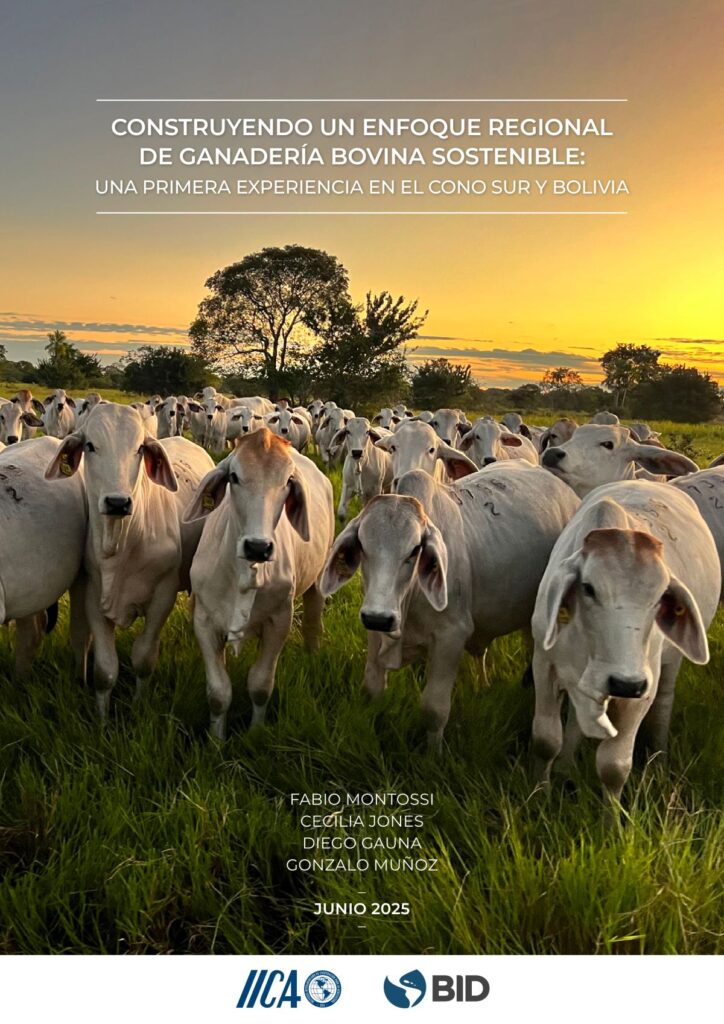
San José, 4 July 2025 (IICA). Sustainable livestock farming initiatives currently underway in Southern Agricultural Council (CAS) member countries have been mapped and analyzed in detail in a publication produced by the Inter-American Development Bank (IDB) and the Inter-American Institute for Cooperation on Agriculture (IICA), which is now available for consultation.
The work is the result of consultations with more than 200 professionals involved in sustainable livestock farming in the region who work for public and private sector organizations or are members of the wider international community.
This document summarizes the work carried out during the first year of operation of the Sustainable Cattle Farming Platform of the Americas. This is a collaborative space managed jointly by IICA and the IDB whose mission is to contribute to information sharing, collaboration, and the generation and dissemination of knowledge on the economic, social, and environmental sustainability of livestock production systems that coexist in the different regions of the Americas.
IICA Director General Manuel Otero said that “the launch of this joint IICA-IDB publication, which specifically addresses the topic of sustainable livestock farming in the Southern Cone of our continent, is an invaluable contribution by our institutions to align the countries’ efforts to implement good production practices in this economically, socially, and culturally important sector. The project involved listening to more than 200 technical experts, which undoubtedly makes this work even more valuable.”
During its first phase of operation, the platform focused on beef production systems in Argentina, Bolivia, Brazil, Chile, Paraguay, and Uruguay, all members of the CAS, a ministerial forum for consultation and coordination of regional actions that aims to define the priorities of the agricultural agenda. These six nations account for 30% of global cattle stocks (45% if India is excluded) and 42% of global meat exports, by volume. The region is home to more than three million livestock production units, reflecting the importance of this activity for the sustainable development of rural areas.
The report is structured in five sections. The first analyzes the importance of sustainable livestock farming for the region, and maps the sustainable livestock initiatives currently underway in the aforementioned countries (strategic frameworks, public policies, programs, private projects, collaborative spaces, etc.). The second section reviews the state-of-the-art science and technology of beef cattle farming, focusing on four topics: carbon balance, water balance, biodiversity, and animal welfare.
The third section identifies and assesses the perceptions of various stakeholders regarding the gaps and needs in the four areas mentioned. The fourth section presents the progress made in developing a proposal for constructing a framework of indicators to evaluate the sustainability of livestock farming. Finally, the fifth section analyzes the current situation, needs, and priorities with regard to research on national greenhouse gas inventories. The report concludes with a series of reflections on the work carried out within the platform.
The publication is available at the following link: https://publications.iadb.org/en/node/36723
More information:
Institutional Communication Division.
comunicacion.institucional@iica.int











